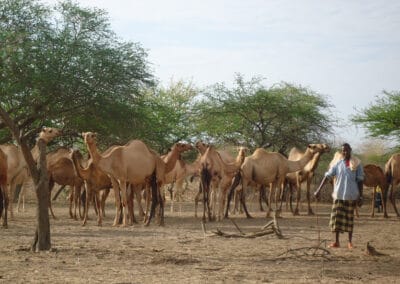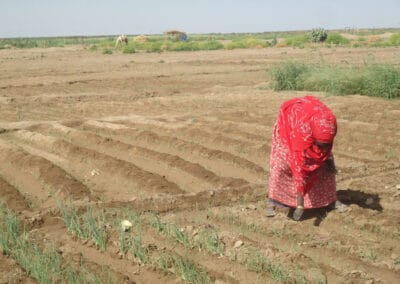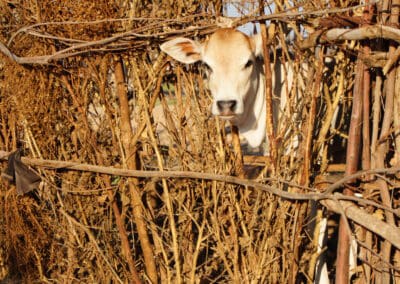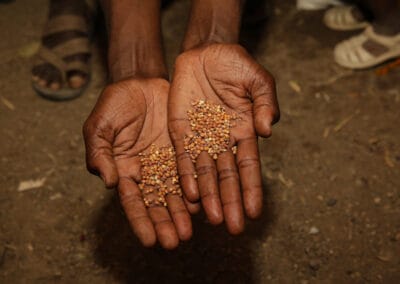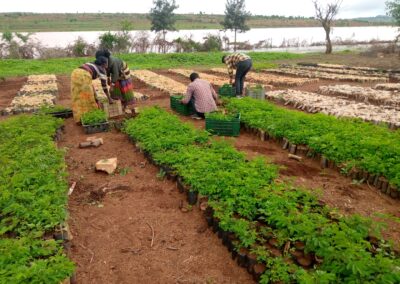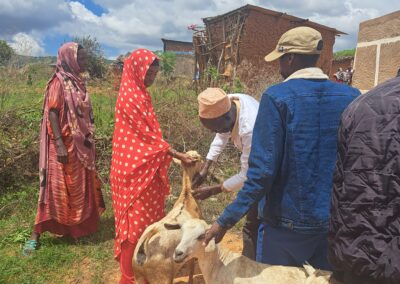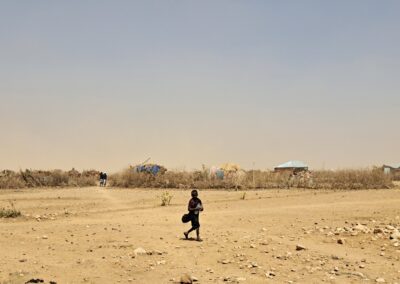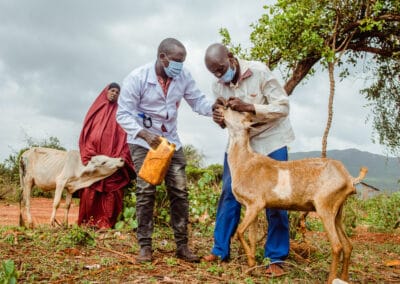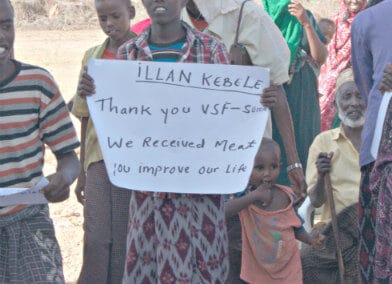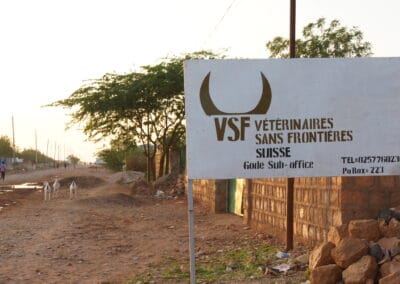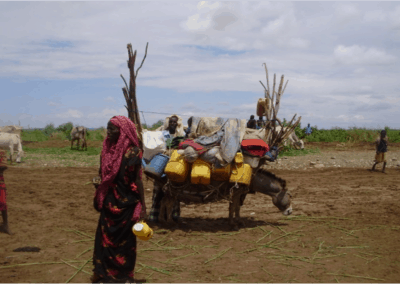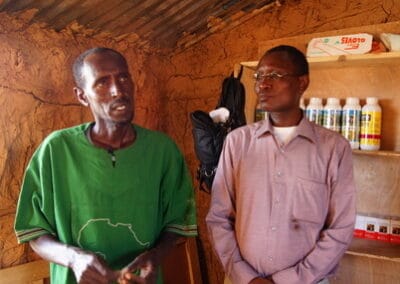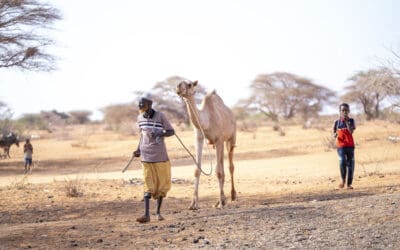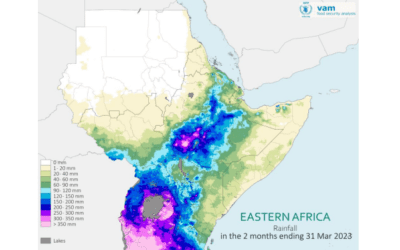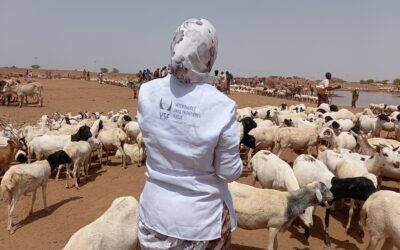Auf Viehzucht basiertes Nothilfeprojekt in Adadle, Hargelle und Gode Woredas der Somali Region in Äthiopien
Projektübersicht:
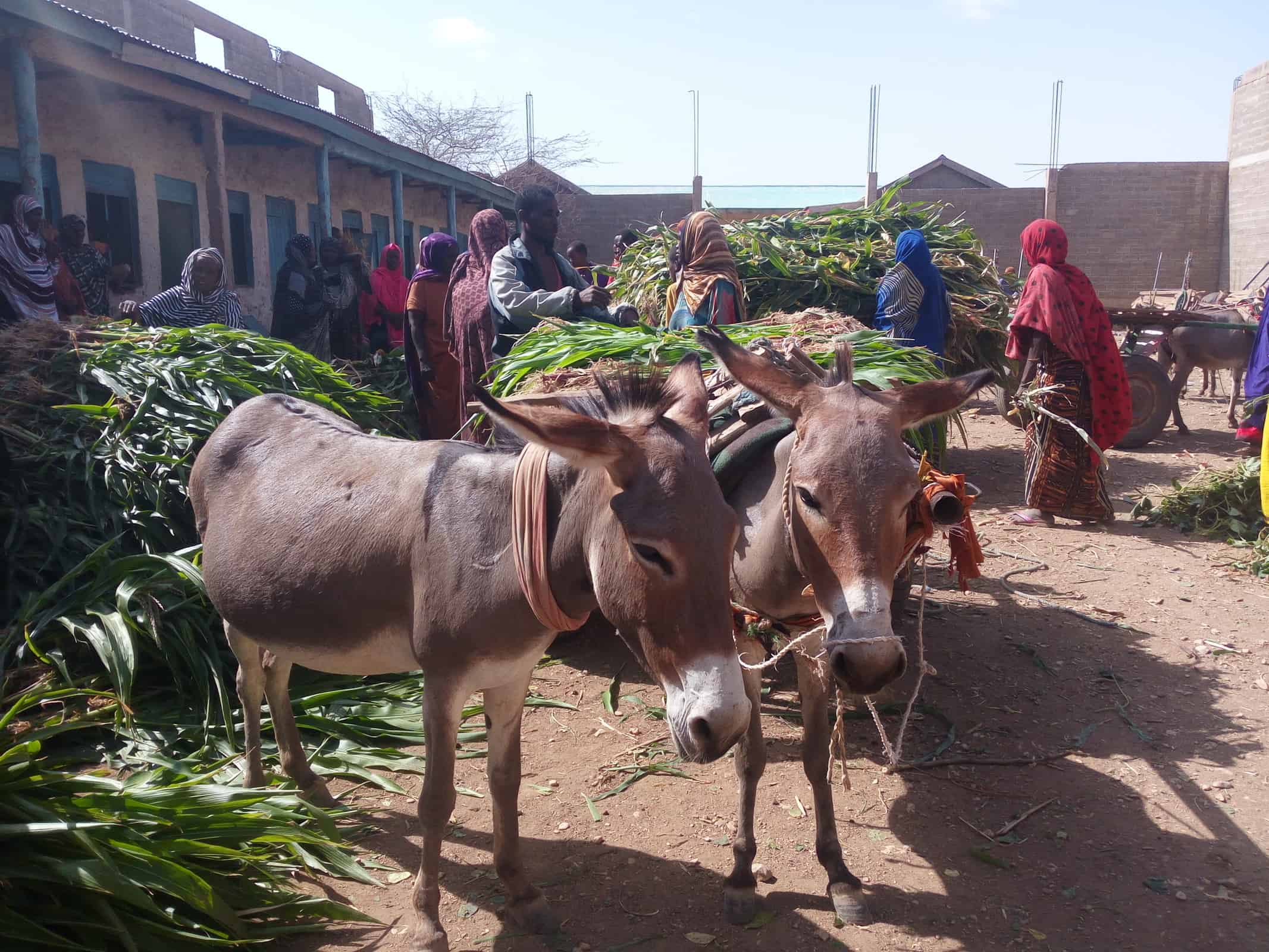
Land
Äthiopien
Projektname
EHF Gode
Projektstatus
Abgeschlossen
Projektdauer
| Start: | 01.08.2019 |
| Ende: | 30.04.2020 |
| 8 Monate |
Budget
In Zusammenarbeit mit
EU
Projektgebiet
Themen
Tags
Ziele und Beschreibung des Projektes gibt es derzeit leider nur auf Englisch:
Hintergrund:
The 219 Humanitarian Needs Overview (HNO) shows the 34% of total population in Somali Region require humanitarian and protection assistance out of whom 36% are estimated to be in acute need. Most of the woredas in Shebelle and Afder Zones are characterized by severe to a critical need.
Shortage of pasture, prevalent livestock diseases compounds the challenge of pastoralist and agro-pastoralist communities whose lives and livelihoods are dependent on livestock and livestock products. The project mainly aims to protect the lives and livelihoods of drought-affected pastoralist communities in Gode, Adadle and Hargelle Woredas of Somali Region. The planned interventions are based on the livestock and crop roadmap for humanitarian assistance developed by DRM/ATF and issued in March 2019. It also follows the Somali Region multi-sector convergence exercise and prioritized interventions by the agriculture cluster.
Projekt:
VSF-Suisse is planning to provide supplementary feeding for core breeds of livestock for 1’500 households in Adadle Woreda of Shebelle Zone and Hargelle Woreda of Afdar Zone. Each household will receive concentrate feed for 5 shoats for 3 months. The feed will be procured from local feed producers having the capacity to provide the needed amount of feed with the desired quality parameters. A laboratory test will be made to the feed samples prior to the procurement to the beneficiary households.
The feed intervention will be integrated with voucher-based livestock treatment intervention for 1’500 households. This involves awareness raising among beneficiary households, distribution of vouchers to beneficiaries, refresher training for Community Animal Health Workers (CAHWs), identifying private veterinary pharmacies (PVP), signing MOU with PVPs, linking the PVPs with the CAHWS, facilitation of the delivery of veterinary drugs to the target kebeles, technical backstopping and continuous follow-up. The project also involves supporting government-led livestock vaccination. This intervention aims to ensure that 85-90% of the livestock population in the target have the expected herd immunity and contain the disease. VSF-Suisse provides technical and logistical support for the government-led vaccination.
Construction of fodder stores in Gode Woreda and capacity building on feed management will also be the other integral component of the project. VSF-Suisse will facilitate the establishing of fodder producers as cooperatives to the be the owners and facilitators of the fodder stores. After being official established and registered by the government, the cooperatives will collect contribution money from the members based on the annual gain/profit. The contribution will be used for maintenance and administrative costs. The cooperative will have bylaw based on which they nominate a fodder store management committee. Moreover, they will be linked to a commercial animal feed processer in Gode and/or Jigjiga.
In all of the interventions proposed, protection will be mainstreamed into the activities. Protection principles such as age, gender and diversity will be integrated into the planning of the initiatives. Accountability to the affected population will be ensured in all phases of the project starting from the planning, beneficiary selection and implementation of the activities on the ground. Moreover, the project words towards ensuring the accessibility of services to the most vulnerable community members.
DSC00081_Ethiopia_2017_Gebi_agriculture_edited-cropped_3_2
Impressionen aus unserer Arbeit in Äthiopien
Weitere Projekte im Land:
Abgeschlossene Projekte:
News zum Thema:
Kamele gegen Klimawandel: Das Internationale Jahr der Kameliden hat begonnen
Das noch junge Jahr soll ganz im Zeichen der Kamele und ihrer Artgenossen stehen. Dies haben die Vereinten Nationen so entschieden. Es soll damit ein Bewusstsein dafür geschaffen werden, wie wichtig Kameliden für die Lebensgrundlagen vieler Menschen sind - und in...
Langersehnter Regen führt zu Überschwemmungen am Horn von Afrika
Regen in Teilen des Horns von Afrika. © WFP Nach trockenem und heissem Wetter im Januar und Februar und einer entsprechenden Verlängerung der Dürre am Horn von Afrika, setzten die saisonalen Regenfälle von März bis Mai in den äquatorialen Gebieten der Region pünktlich...
Im Einsatz gegen Dürre und Hunger in Äthiopien
Im Bild: Eine von VSF-Suisse ausgebildete Tiergesundheitshelferin im Einsatz in Äthiopien. © VSF-Suisse Die Dürre und die damit verbundene Ernährungskrise bedrohen weiterhin Menschen- und Tierleben am Horn von Afrika (wir berichteten). VSF-Suisse setzt sich vor Ort...

